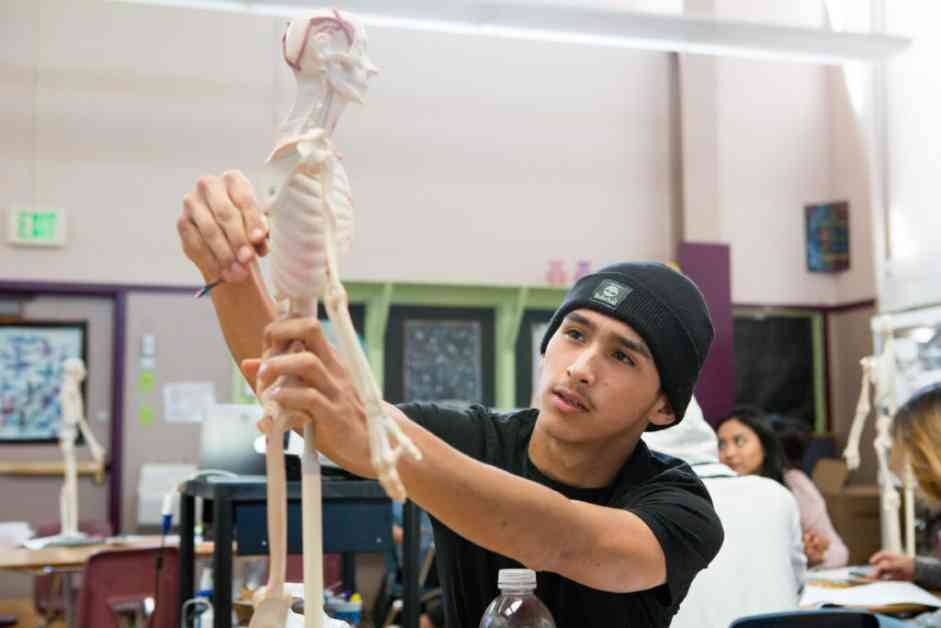Creating a Meritocratic Society Through Personalized Education: Why One-Size-Fits-All Won’t Cut It
A seismic shift in the education landscape is underway, challenging the status quo and advocating for a more inclusive and dynamic approach to learning. In Oakland’s Skyline High School Education and Community Health Pathway, a student passionately sculpts a clay model of the endocrine system, embodying the essence of personalized education that stands in stark contrast to the traditional one-size-fits-all model that has plagued our educational system for far too long.
The current system, rooted in a rigid framework that favors theory over practice, has inadvertently limited opportunities for countless parents and students. Grades and test scores have become the ultimate gatekeepers to success, overshadowing competencies and interests that lie beyond standardized exams and essays. This myopic approach not only perpetuates existing inequalities but also fails to acknowledge the diverse talents and potential of students from varying backgrounds.
A Historical Perspective: The Decline of Vocational Education
In the past, students had the option to pursue vocational education through publicly funded trade schools and apprenticeships, or engage in practice-based classes that equipped them with valuable skills for lucrative careers in various trades. However, over time, funding for such programs dwindled, giving way to a system that heavily relies on traditional academic settings for instruction and assessment.
The Social Class Divide: A Harsh Reality
Research from the Economic Policy Institute reveals a stark reality: social class remains a significant predictor of a student’s school readiness, with kindergartners from higher social classes outperforming their peers from lower socio-economic backgrounds. This disparity, particularly pronounced among Black and Hispanic students, underscores the urgent need for a more inclusive and equitable educational framework.
Embracing Change: Lessons from Finland
Drawing inspiration from Finland’s educational model, which seamlessly integrates academic and technical subjects until students reach age 16, offers a compelling vision for a more holistic approach to education. By providing students with diverse pathways that cater to their interests and aptitudes, Finland has created a system that celebrates both academic and vocational excellence, leading to unparalleled levels of happiness and income equality.
As we navigate the complexities of reforming our education system, it is crucial to prioritize the value of all students and offer a spectrum of career and technical opportunities across K-12 education. By investing in career and technical education, apprenticeships, and hands-on learning courses, we can pave the way for a more inclusive and meritocratic society where every individual has the opportunity to thrive and succeed.
Eric Chung, a passionate advocate for economic mobility and educational opportunity, emphasizes the importance of recognizing the inherent value of all students and fostering a system that embraces diversity and innovation. As we embark on this transformative journey towards a more inclusive educational paradigm, let us remember that true progress lies in empowering every individual to reach their full potential, regardless of their background or circumstances.




















